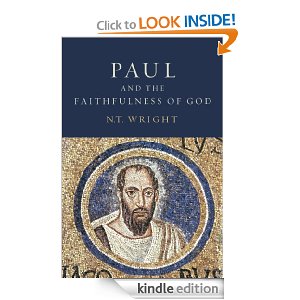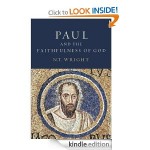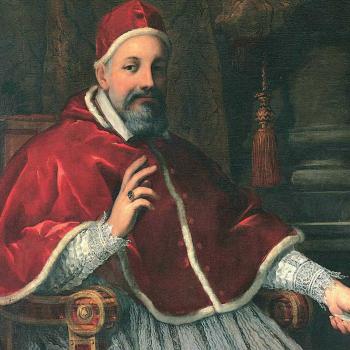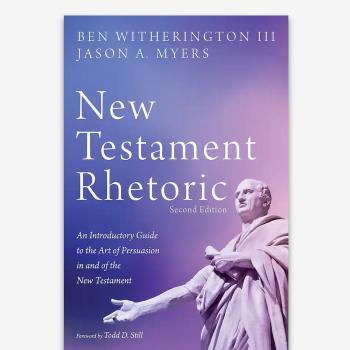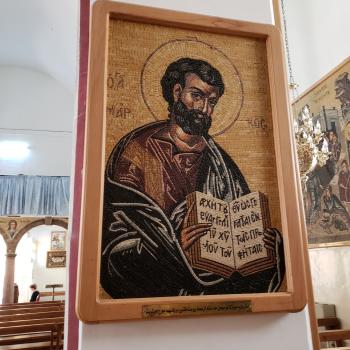Beginning on p. 728, Tom will deal with monotheism and the single united family of God. Here the basic thesis is— “It is after all the unity of the Messiah’s followers that will demonstrate that they are indeed the new humanity, the true people of the one God of Israel.” For Tom this segment, and the focus on the community is crucial not least because mere new ideas are not sufficient to create a new worldview. He puts it this way on that same page— “the symbolic praxis of the worldview, the place where the worldview became visible and tangible–was the concrete reality of the united community for which Paul works in letter after letter,against one danger and another, from one angle after another.” The new Temple is the new humanity and within that is the living presence of the living God, now understood to involve Christ and Spirit as well as the Father, reformulated around Christ and Spirit.
On p. 733, Tom stresses that Paul simply assuming things like the deity or divinity of Christ (he does not argue for them). What he was keen on demonstrating however was “that in and through Jesus and the spirit the one God had established his kingdom in a totally new and unexpected way….incarnational belief is the key in which the music is set, but the tune is the great swelling theme of the inaugurated kingdom of the one God.” Thus for Paul monotheism is not a bare idea, it is an agenda. The idea is that God’s reign has broken into human history relativizing all other reigns and kingdoms. The kingdom is accomplished by the death of the King, paradoxically enough.
As Tom points out on p. 736, this Kingdom of God, as 1 Cor. 15 is meant to be established throughout the earth, not for instance just in human hearts, or even just in the Holy Land. If however Paul believes God’s kingdom is coming and his will being done on earth, as in heaven. If he believes Christ has defeated the principalities and powers on the cross, what exactly does he think people need to be saved from at this juncture?
As Tom says on p. 737–“the stronger your monotheism, the sharper your problem of evil.” The problem is not just to figure out evil, as if it were an intellectual puzzle. The problem is to do something about the evil mess in this world. As Tom points out, there have been two easy ways out— deny the reality of evil in the world, or deny that God or the gods are involved in the world (the former like Stoicism, the latter like Epicureanism). In short, either evil isn’t there or isn’t evil, or God isn’t there or doesn’t care. “The Stoic coped by persuading himself that things outside of his own control ought not to be the subject of regret. The Epicurean coped by retreating from the painful world and enjoying such quiet pleasure as might be available.” (p. 738).
As Tom goes on to add, Christian thinkers like Paul could avail themselves of neither of these solutions, because in their view God was there, God cared and was actively involved in the world, and dualism or polytheism was no answer either for where evil came from and why it existed. We will continue this discussion in the next post.


